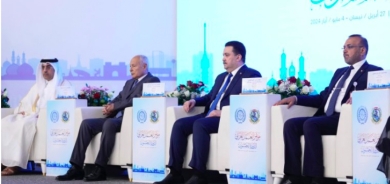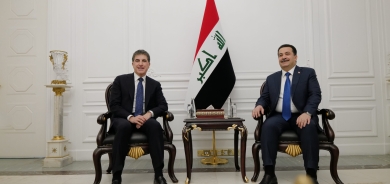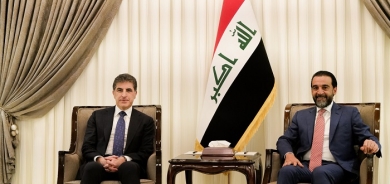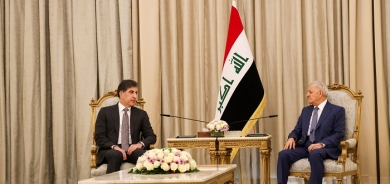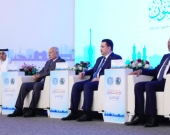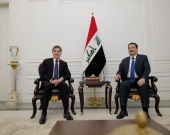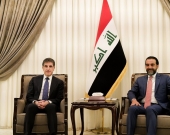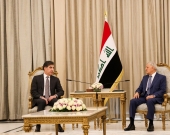Egypt’s SCAF ‘surprised’ by Mursi’s decision to reconvene parliament
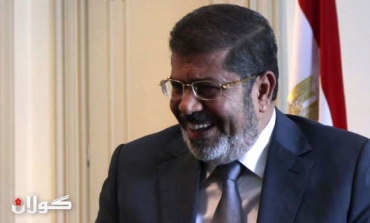
The decision “was a surprise to everyone, including the military council,” the sources told Egyptian al-Masry al-Youm.
Another member of the council, who declined to be identified, told Reuters earlier that the generals had not been given prior warning of Mursi’s decision.
Mursi’s surprise decision essentially revoked the military council’s mid-June decision to dissolve the People’s Assembly following a Supreme Constitutional Court verdict deeming an elections law -- which governed last year’s legislative polls -- unconstitutional.
The Supreme Constitutional Court ordered the lower house of parliament dissolved on June 14 after finding fault with the election process. The generals implemented the decision two days later and then issued a decree outlining presidential powers on June 17, even before presidential election votes were counted.
The Supreme Constitutional Court called an emergency session on Monday to review the Mursi’s move, the court’s deputy Maher Sami told the state news agency MENA, signaling there could be a prolonged legal wrangle.
The Brotherhood has filed a legal suit in another court challenging the ruling to dissolve parliament, arguing such a decision should only be taken with popular consent.
“We must know the reasons for this decision, and the circumstances that led to its release,” Major General Sayed Hashem, a former military prosecutor, was quoted by al-Masry al-Youm as saying.
“The return of the legislative body is temporary until the re-instatement of a permanent constitution. Holding these modified elections would mean recognition of the invalidity of Parliament’s original formation,” he added.
Some military sources said they expect Mursi’s decision to affect the possibility of his attendance at upcoming graduations of Military Academies.
Experts say that the move by Mursi will lead to a clash with the powerful generals who formally handed power to him on June 30.
Dr. Ibrahim Darwish, a constitutional expert, told Al Arabiya that Mursi’s decision is considered an assault on judiciary, describing the step as “the worst assault in the history of Egypt.”
Darwish predicted a “very serious” scenario, represented in a possible military coup by young members of the SCAF for the main purpose of protecting what he called “constitutional legitimacy.”
Liberal MP Amr Hamzawi slammed Mursi’s decision as “a violation of judicial rulings and accordingly violates law supremacy.”
Mohamed ElBaradei, the cofounder of the Dostour Party, criticized the decision by President Mursi, saying it was a “violation” of judicial authority.
“The executive decision to overrule the Constitutional Court is turning Egypt from a government of law into a government of men,” ElBaradei wrote on his Twitter account.
People’s Assembly Speaker Saad al-Katatny, an Islamist, welcomed Mursi’s decision and called on Parliament to reconvene and begin work immediately. He said Mursi’s decision was “respectful to the supremacy of the law and public institutions.”
In a press release, Katatny added that “the People’s Assembly will resume its legislative oversight powers immediately once it is in session within hours, in respect of the legitimacy of the Constitution and the law.”
Essam al-Islamboly, a legal expert, told Egypt’s online edition of al-Ahram that the decree represented an “infringement” of the court ruling.
“The SCAF can resort to using the Supreme Administrative Court, which in turn can refer it to the Supreme Constitutional Court, which can then cancel the decree if it deems it unconstitutional,” Islamboly explained.
After a little more than a week in office, Mursi’s move highlights the power struggle likely to define his term, pitting long repressed Islamists against generals used to calling the shots and an establishment full of Mubarak-era officials.
It also threatens a fresh legal wrangle over whether Mursi can overrule a decision by the Supreme Constitutional Court to dissolve parliament, creating more uncertainty at a time when the economy is creaking after 17 months of political turmoil.
Saad Husseini, a senior member of the Brotherhood, said he did not believe the military would challenge Mursi’s decree.
“We are confident the military council will not drag the country into a political whirlpool,” he said.
Mursi’s decree was announced shortly after he received his first official U.S. visitor in the presidential palace, Deputy Secretary of State William Burns, whose country gives $1.3 billion of aid to Egypt’s military every year.
Burns praised Egypt’s progress but said there was more to be done. “It will be critical to see a democratically elected parliament in place and an inclusive process to draft a new constitution that upholds universal rights,” Burns said after meeting Mursi and before the decree was issued, according to Reuters.
After a call for a show of support by the Brotherhood’s Freedom and Justice Party, with the biggest bloc in parliament, a few hundred people gathered in Cairo’s Tahrir Square. “We love you Mursi,” they chanted, along with “Down with military rule.”
Mursi has resigned from both the Brotherhood and its party.
In his decree, Mursi called for an early parliamentary election for a new assembly within 60 days of the nation approving a new constitution, which has still to be drafted.
That suggested a possible attempt at compromise by indicating the assembly, criticized by some for a poor initial performance and dissolved by court order just months after it was elected, would not serve a full four-year term.
AL ARABIYA

